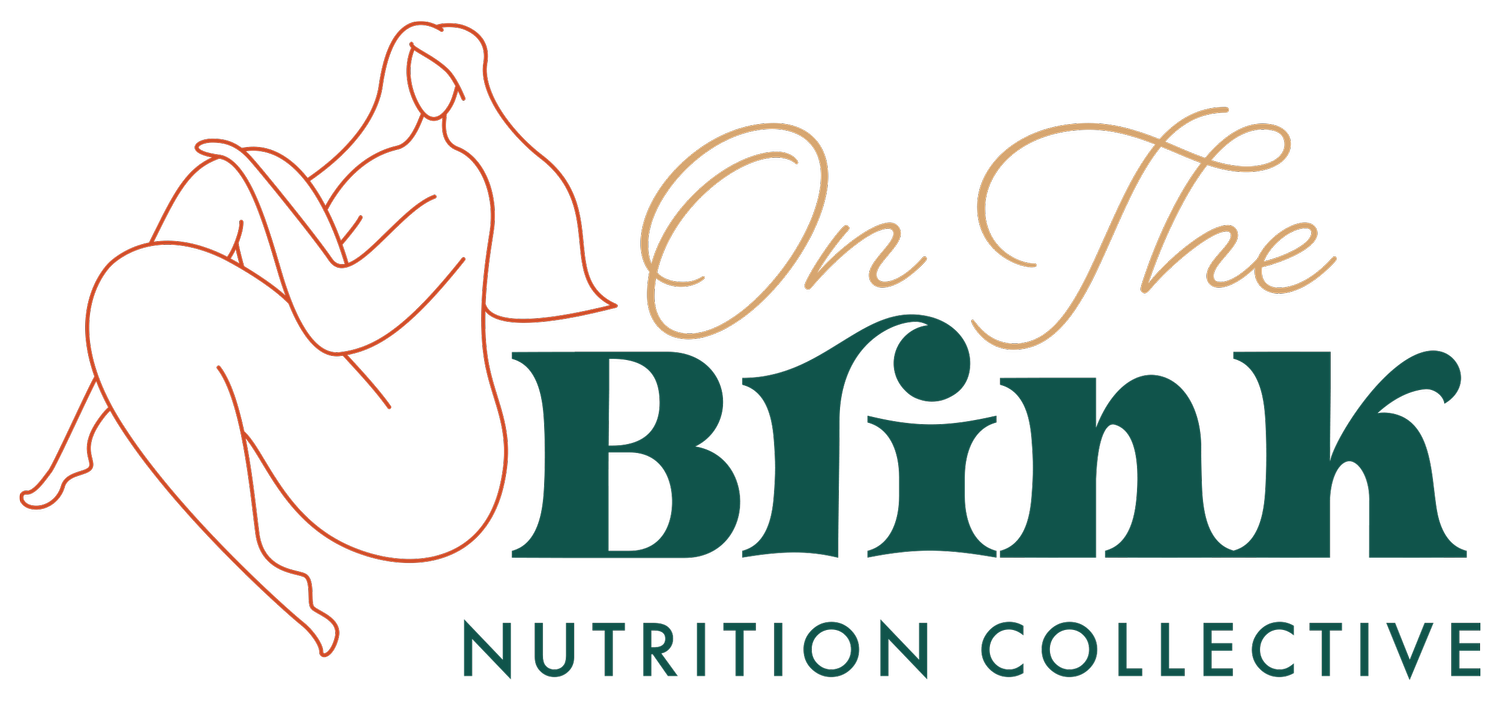Your body is not a problem to solve and resolve
Did you know that the word resolution is the noun form of the verb resolve? Once I realized this, I finally understood why I have such a hate-hate relationship with the worst type of New Year’s resolutions: the resolution to FINALLY lose that weight.
Your body is not a problem to solve and resolve.
You are not alone if you have been conditioned into believing that to be “well”, “good”, “worthy” and “healthy”, you need to lose weight or be a certain size/shape/BMI. We are especially vulnerable to these lies on the cusp of a new year.
How about trying something new this year? Weight-loss-focused New Year’s Resolutions have a high fail rate because they discount the fact that no one can predict how your body will respond to a diet and you can’t predict circumstances outside of your control that disrupt your ability to follow the rules of that next diet. Rather than focusing on specific weight goals, consider finding ways to live into your values and adopt behaviors that promote rest, balance, nourishment, and meaningful movement.
Below you can find one path to lasting change.
First, get to know your values and what you care about.
A Nudge word: a word that reflects your values, intentions, and vision for the coming year. It isn’t focused on a single goal. It captures the mindset you want to adopt in 2024. This article might help you find your word.
Examples:
Awaken (from the mindfulness category)
Well-being (from the self-improvement category)
Stretch (from the growth category)
A Personal Motto or Mantra: to remind you of your values and goals. A mantra can remind you of who you are and what you care about.
A Personal Motto or Mantra: to remind you of your values and goals. A mantra can remind you of who you are and what you care about.
Examples:
Every meal is another chance to nourish myself well.
One moment at a time.
I’ve done it before and I can do it again.
Next, clear up some barriers
Letting Go: reflect on the baggage you’ve carried and the things that have held you back.
Examples:
Getting caught in a comparison trap. To compare is human nature, but getting caught up in comparison is holding you back.
Having only one way to deal with conflict. We all have our go-to style, but familiarizing ourselves with and knowing when to practice the various styles can lead to better relationships and getting our needs met.
Needing to appear perfect: the diet, the perfect size, the perfect clothes, the perfect job, etc.
Create a “To-Don’t List”: when we orient our daily life toward achieving tasks, we run the risk of creating an imbalance between productivity and all the other great parts of being alive (creativity, pleasure, relationships, to name a few). We are left with only one way of determining a good day as to how much we get done. If the idea of giving up a checklist makes you cringe, consider creating a “To-Don’t List:
Examples:
Don’t make yourself workout when you are feeling tired and/or ill
Don’t go on a diet
Don’t use social media as your sole source of information about nutrition
Don’t define your worth based on your weight
Finally, create a path for sustainable change or, at least, come up with some experiments to try out change.
An Intention: focuses more on how you approach your life, rather than what you accomplish.
Example:
Explore my passions
Get out of my comfort zone
Play outside
Nourish myself adequately throughout the day
Create a Bucket List: create a list of things you want to do in 2024 that have a positive spin and help you live into your values.
Examples:
Explore a new cuisine, try a new recipe
Use a new kitchen tool or cooking technique
Read a story about someone’s eating disorder recovery journey
Choose a physical activity based on fun and play instead of “gains” and a means to “earn” food.
Reach out if you’d like help resisting the urge to start another diet and you want to find a new, more sustainable way to care for yourself when it comes to eating, movement, and your relationship with your body. We are here to help!
